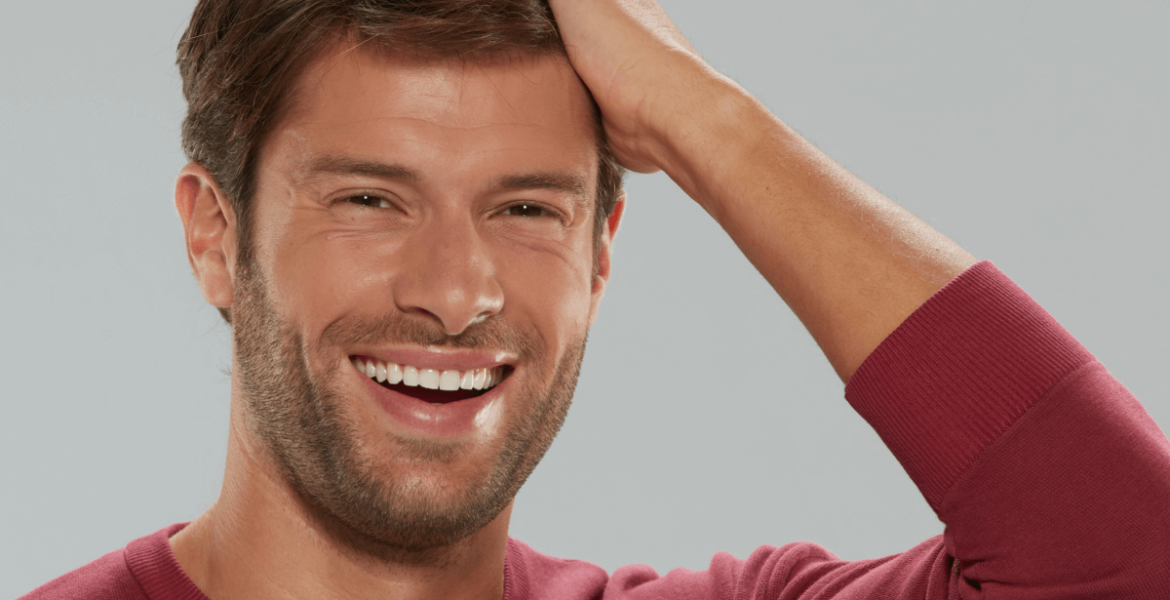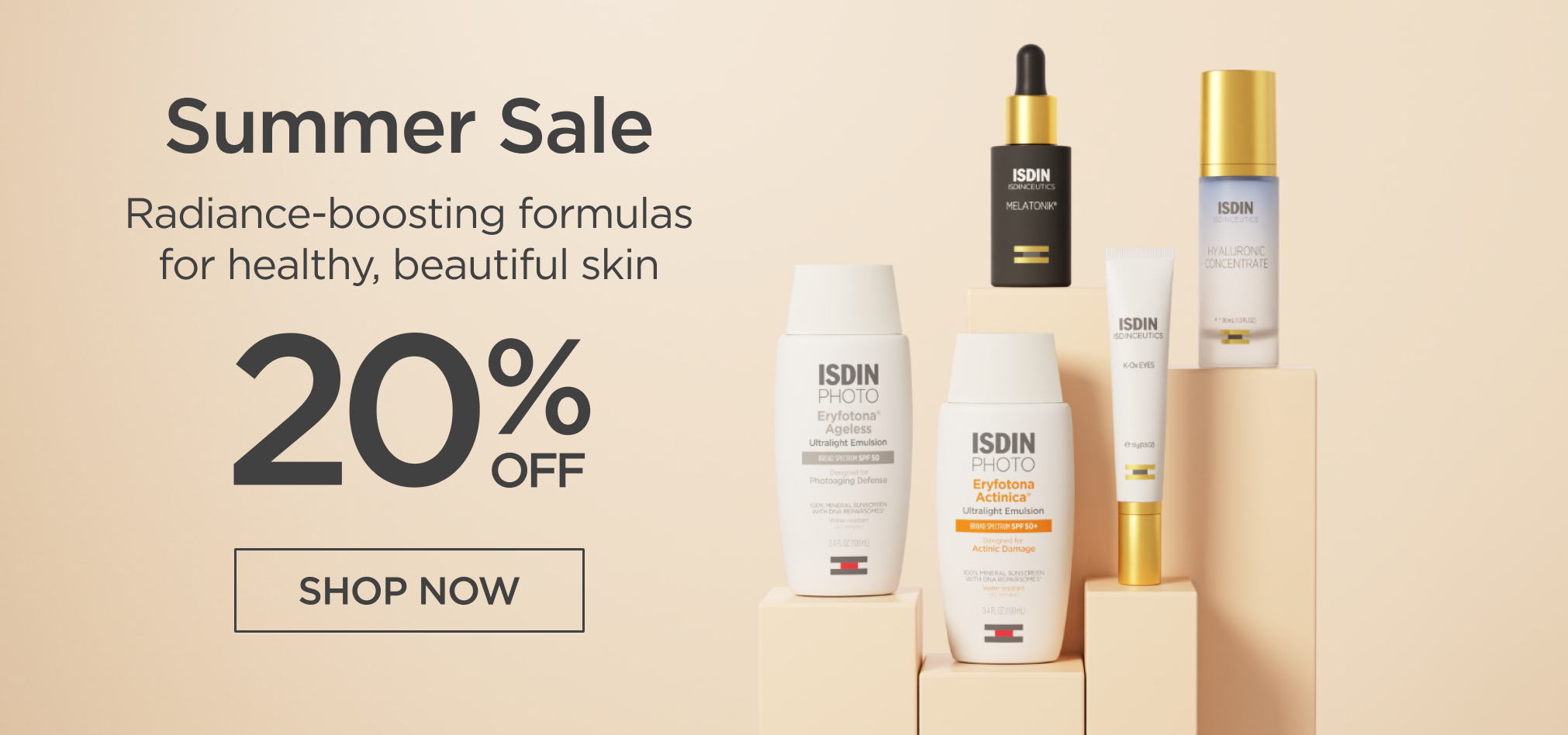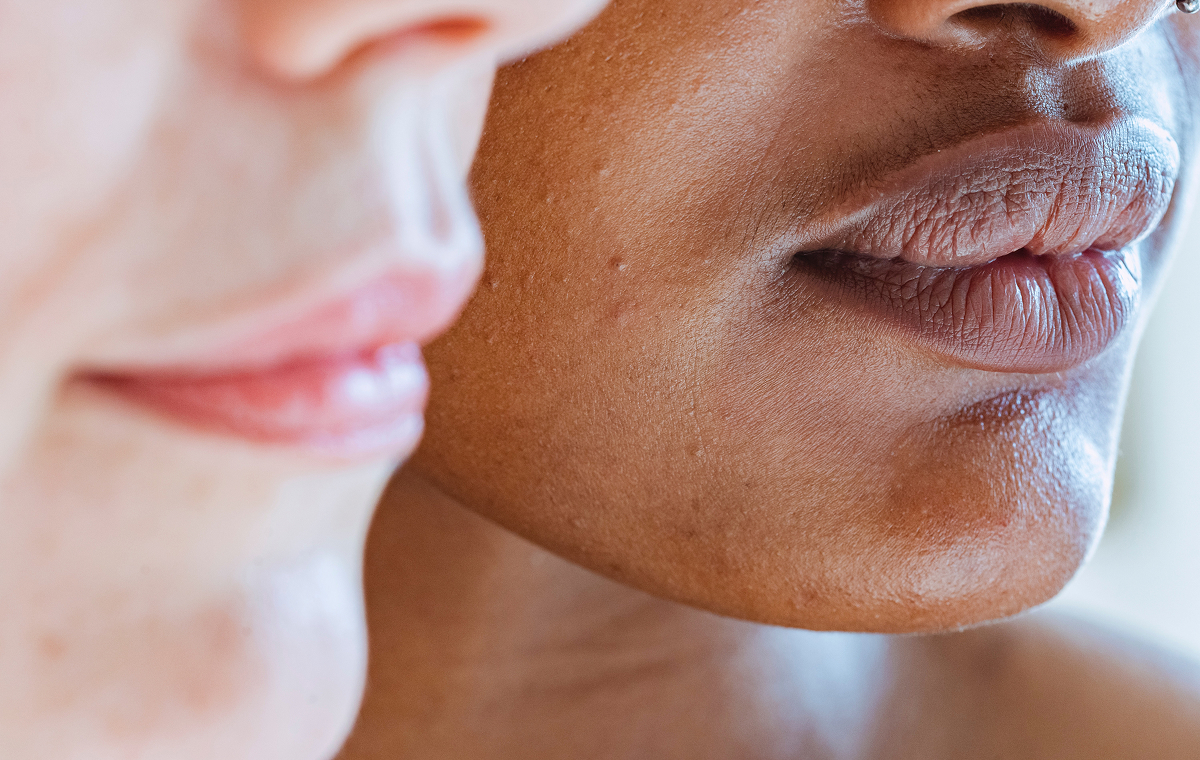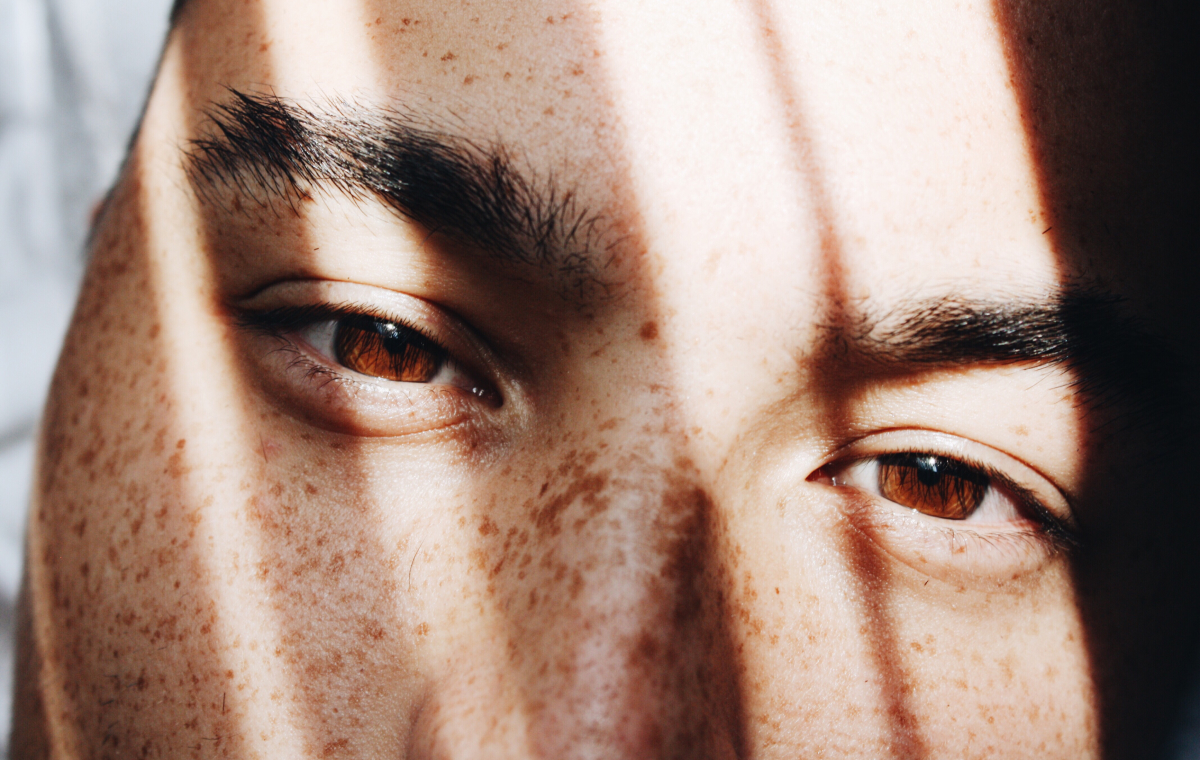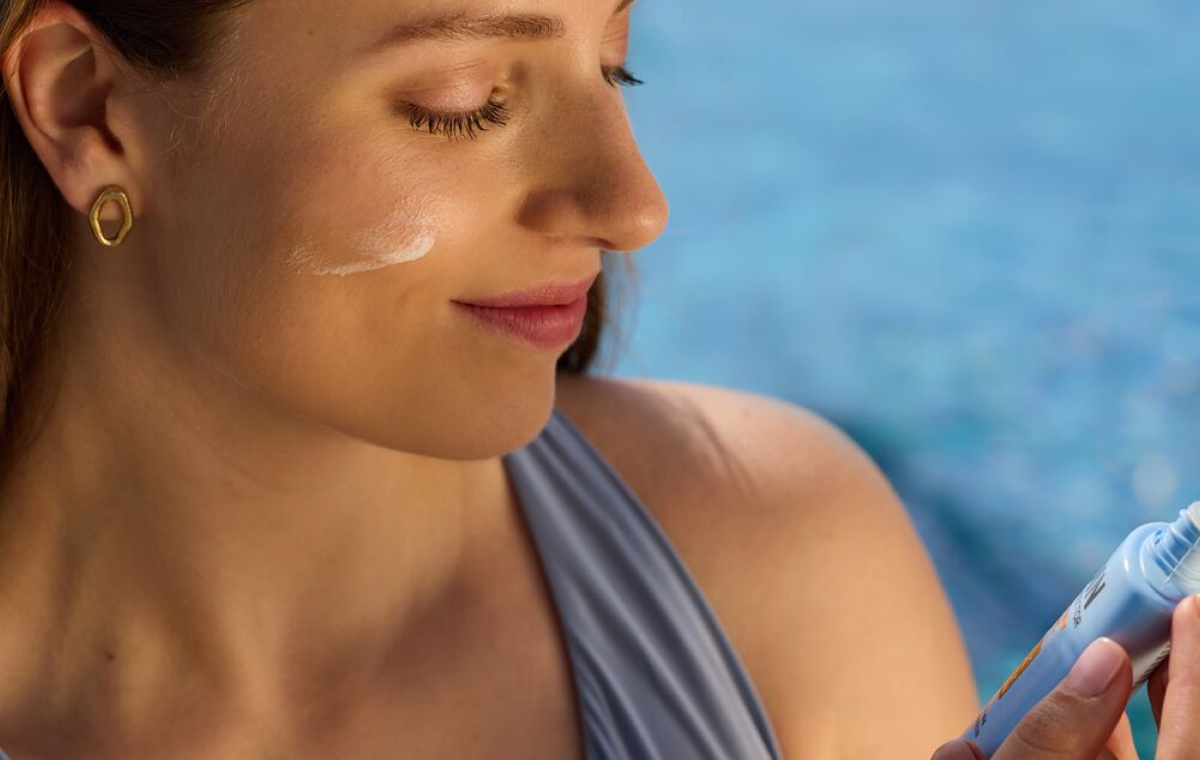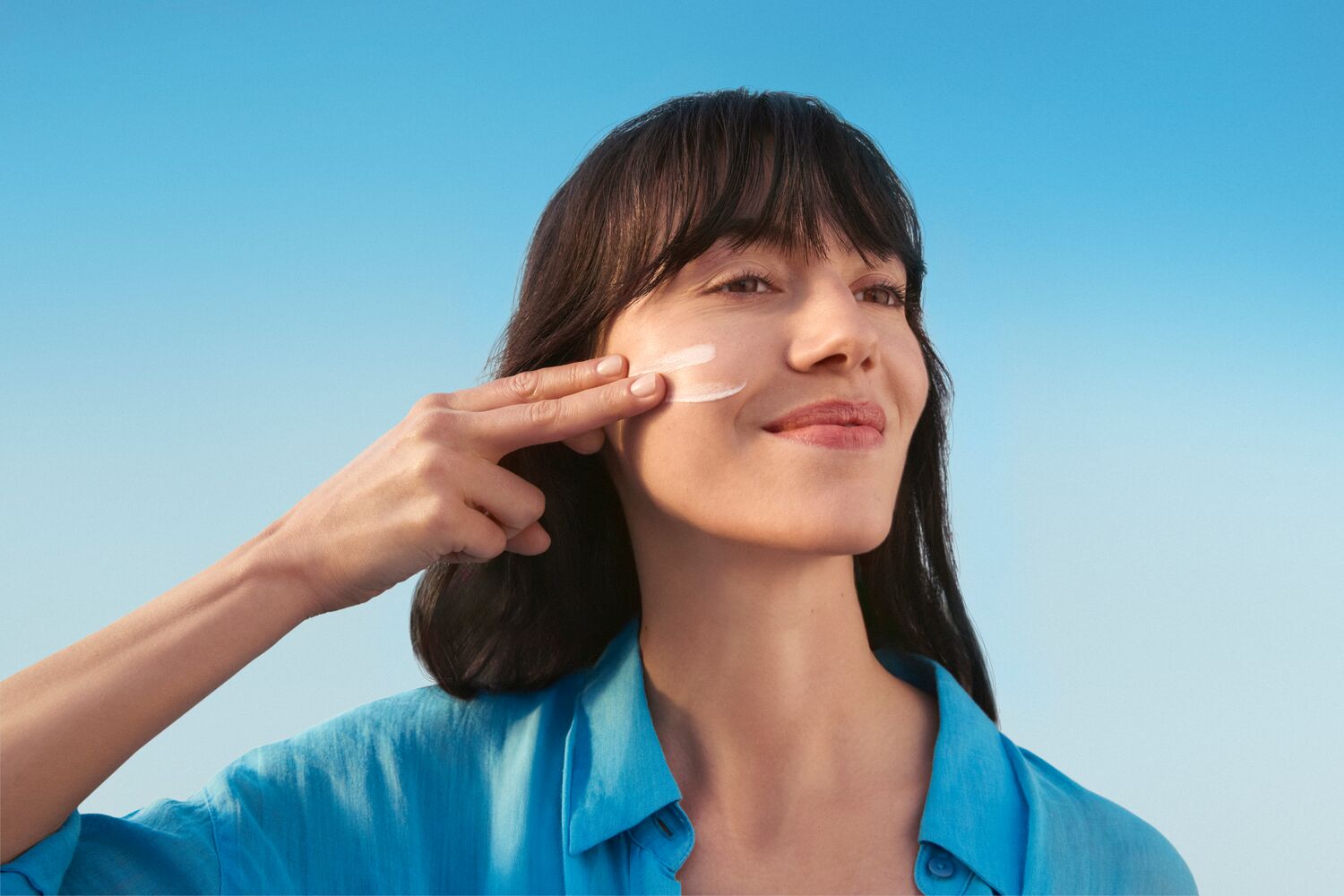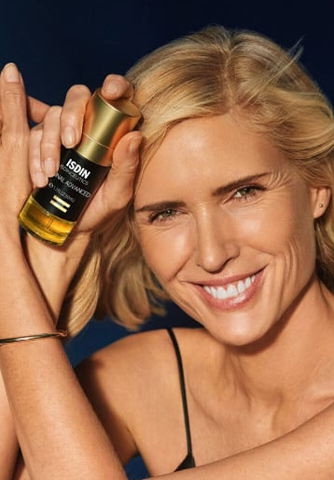Our hair is part of who we are. And both men and women are affected by hair loss and their self-image surrounding it. As we age, it’s normal to experience some hair loss and hair thinning – in fact, according to the American Academy of Dermatology, we lose between 50 and 100 hairs from our heads every single day.
Losing hair is part of life, but when hair loss happens suddenly, at a young age, or when you’re losing far more than the average, it can affect your self-esteem and confidence. There are many different reasons behind why hair falls out, so let’s take a look at what causes hair loss.
Table of Contents
What causes hair loss in young men and women?
1. Genetics
One of the most common types of hair loss is androgenic alopecia, also known as male or female pattern baldness. If you have a family history of balding, then it could be an indicator of your hair loss, too. Some people are simply more likely to experience hair loss because it’s passed down in their genes.
Mythbusting: It’s commonly said that the ‘balding’ gene is passed down from your mother’s side, but this statement isn’t completely true – hair loss on either side of the family can increase the risk of balding.
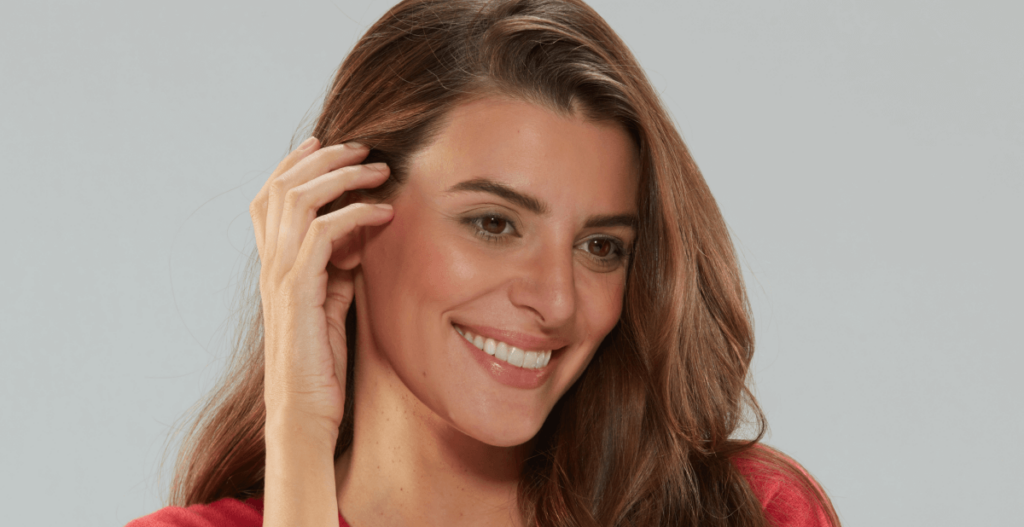
2. Hormones
In both women and men, hormones are considered one of the main risk factors for hair loss, because they are involved in the hair growth cycle. Hormones that affect hair loss include dihydrotestosterone (DHT, a by-product of testosterone), estrogen, and thyroid hormone.
Hormonal hair loss in women:
Disruption to the body’s normal hormonal cycles, or a change in hormone levels can result in hair loss. In fact, some women may notice hair loss during menopause due to the change in hormone production, and in pregnancy, when estrogen levels rise.
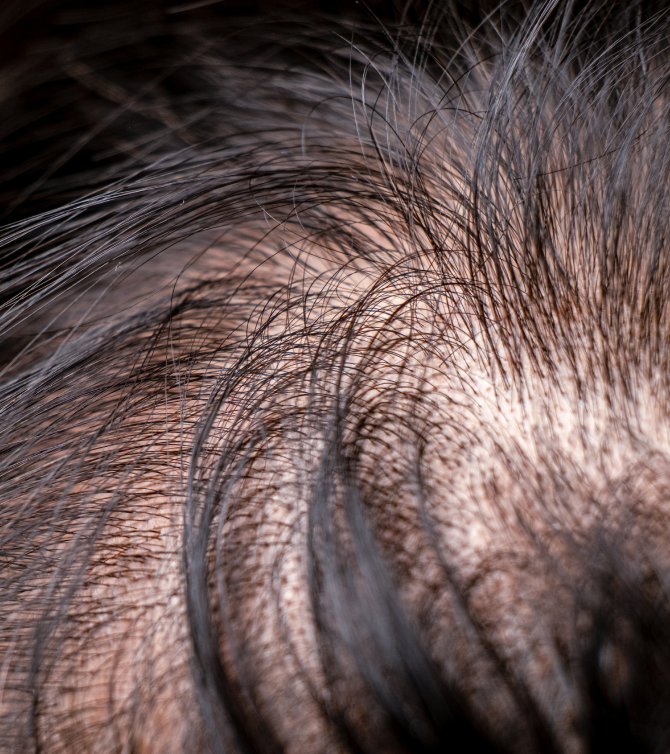
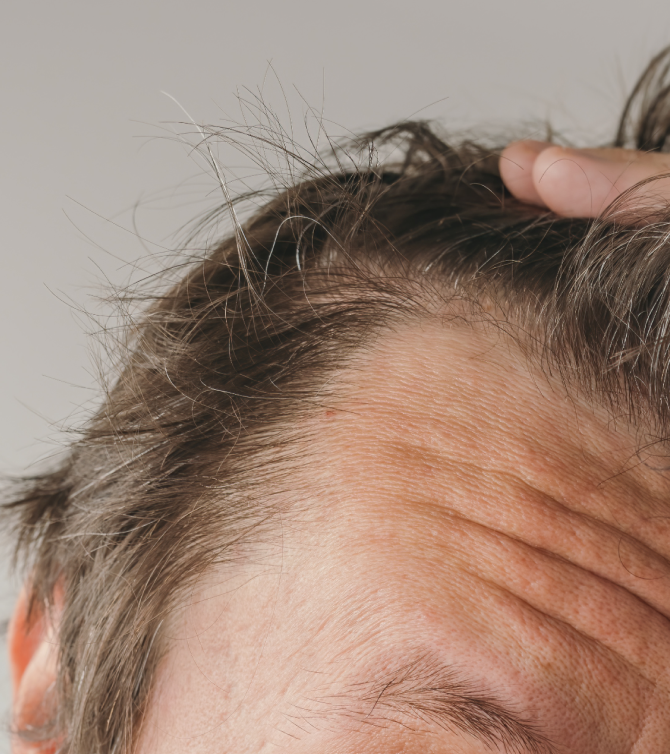
Hormonal hair loss in men
Testosterone is released continuously in men and levels decrease progressively with age. It is estimated that male testosterone levels typically drop 0.8% per year after age 40. This decrease in testosterone can correspond to hair loss in some men.
3. Environmental factors & lifestyle
Aside from your genes and hormones, hair loss can be affected by environmental factors and your lifestyle. In general, living as healthily as possible, including not smoking, drinking in moderation, avoiding sun exposure, and following a healthy diet, will help to keep your hair looking its best in addition to being better for your overall health.
However, there are habits and external factors which can cause hair loss, some of which we have less control over. This is why it’s important to visit a medical professional if you’re experiencing hair loss, so they can offer you their expert guidance.
Some of the most common environmental and lifestyle triggers include:
Hairstyles, products, and accessories
Keep in mind: things that affect the hair shaft don’t necessarily affect your scalp. So, applying certain products may damage your hair but that doesn’t mean they will increase hair loss.
However, what does affect your scalp is how often you’re washing your hair. If your hair feels greasy every day, it’s best to wash it to stop excess sebum from blocking your hair follicles (and these are responsible for growth!).
If you’re constantly wearing a hat or over-using products like sprays, gels, and mousses then your scalp may become greasy, which can be problematic. Extremely tight braids or ponytails and/or consistently wearing wigs can also contribute to bald spots over time.
Stress
Stress to the body, such as surgical trauma, can cause hair loss even months after the event. But it’s not just physical stress – have you ever noticed your hair falling out after long periods of worry and angst? You’re not alone – psychological stress is also linked to hair loss.
Mythbusting: Think thinning hair can only get worse? The good news is that’s not always the case. As causes of stress are usually temporary, this is true as well for hair loss related to stress – once you’re on top of your stress, the hair should grow back.
Pollution
Pollution has been connected to skin damage and premature aging, but did you know that it may also affect our hair? Environmental pollution contributes to an increase of free radicals in the body, which in turn triggers a process called oxidative stress.
When this happens, your body’s natural defenses aren’t able to fight and neutralize all the free radicals effectively. These free radicals can then damage the cellular membranes, lipids (fats), proteins, and DNA, which may be a contributing factor towards hair loss.

Nutrition
The expression you are what you eat definitely has some truth to it when it comes to your hair. Studies have shown that nutritional deficiency and sudden weight loss can impact both the structure of the hair and new hair growth – meaning if you’re not getting the vitamins and minerals your body needs, your hair will feel it too.
Vitamin and mineral deficiencies can contribute to hair shedding, so it’s important to follow a varied, healthy diet to take steps towards healthier hair. Speak to your doctor if you’re unsure about whether you need to boost your nutrient intake. You can also consider adding a supplement to your diet to help support overall hair health.

Medically-related hair loss
A wide range of conditions are connected to hair loss, including polycystic ovary syndrome (PCOS), skin conditions such as psoriasis and seborrheic dermatitis, and autoimmune conditions like lupus.
It is also important to know that hair loss can be associated with some medications, though hair loss related to medical conditions or medication can often be reversed. For this reason, it’s always best to speak to your doctor about any hair loss concerns you might have, so they can investigate the causes behind potential loss.
Mythbusting: Does dandruff cause baldness or receding hairlines? Not exactly — dandruff in and of itself doesn’t cause hair loss. But medical conditions of the scalp such as seborrheic dermatitis, eczema, psoriasis, and fungal infections (like ringworm) may also cause dandruff or flaky skin. And these conditions are linked with hair loss. Excessive scratching can also lead to damage and inflammation, exacerbating hair thinning.
For more information and advice on hair loss, and potential treatment options, contact your dermatologist.
Sources and references:
The American Academy of Dermatology (https://www.aad.org/public/skin-hair-nails/hair-care/hair-loss-vs-hair-shedding)
The U.S National Library of Medicine: Genetics Home Reference (https://ghr.nlm.nih.gov/condition/androgenetic-alopecia#inheritance)
Almohanna, HM., Ahmed, AA., Tsatalis, JP., Tosti, Antonella. The Role of Vitamins and Minerals in Hair Loss: A Review. In Dermatology and Therapy (2019); 9(1): 51-70.
Martinez-Jacobo L, Villarreal-Villarreal CD, Ortiz-López R, Ocampo-Candiani J, Rojas-Martínez A. Genetic and molecular aspects of androgenetic alopecia. Indian J Dermatol Venereol Leprol 2018;84:263-8
Harrison, S., Bergfeld, W. Diffuse Hair Loss: Its triggers and management. In Cleveland Clinic Journal of Medicine (2009), Vol 76(6).
Hadshiew, IM., Foitzik, K., Arck, PC., Paus, R. Burden of Hair Loss: Stress and the Underestimated Psychosocial Impact of Telogen Effluvium and Androgenetic Alopecia. In Journal of Investigative Dermatology (September 2004), Vol. 123(3); 455-457.
Trüeb, RM. Oxidative Stress in Ageing of Hair. In Int J Trichology (Jan-Jun 2009), Vol. 1(1); 6-14.
Guo, EL., Katta, R. Diet and hair loss: effects of nutrient deficiency and supplement use. In Dermatol Pract Concept (2017), Vol. 7(1); 1-10.
Guzmán-Sánchez, D., Asz-Sigall, D. Alopecias due to drugs and other skin and systemic disorders. In Alopecias – Practical Evaluation and Management. Curr Probl Dermatol (2015);47:97-106.
Behind the blog:
Article written and reviewed by:
Our namesake embodies the spirit of embracing life and all its wonder. As wellness journalists, we explore topics that invigorate the senses and keep curiosity alive. We believe that glowing skin is the result of a healthy body and mind. Weaving beauty with science, we aim to inspire you to live young at every age.

